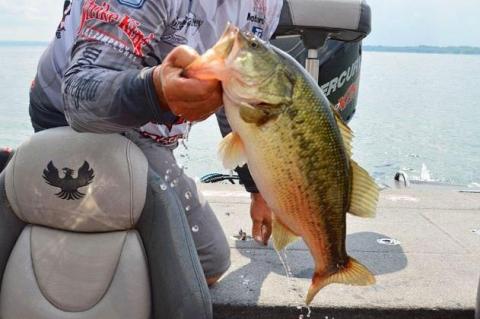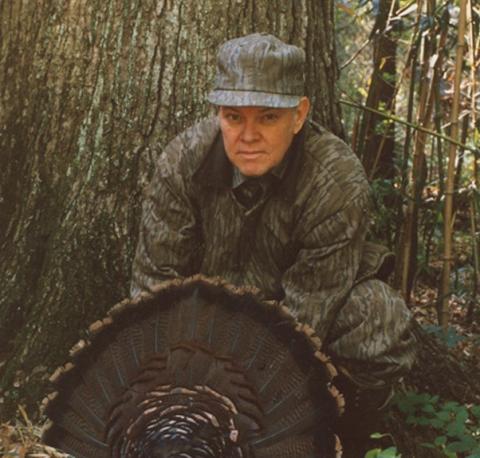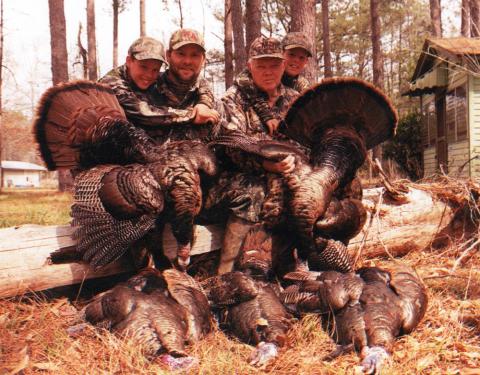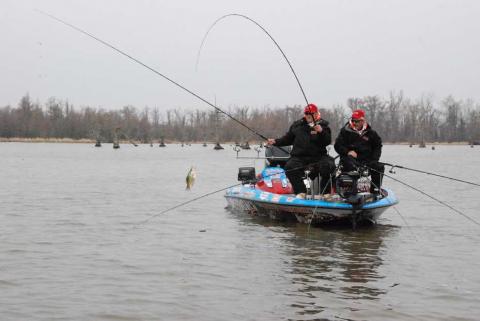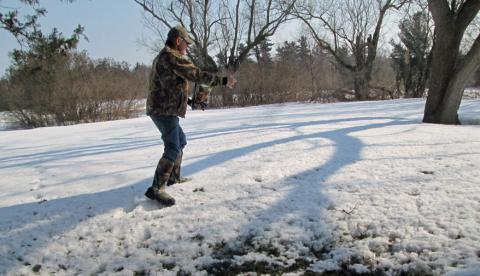Ben Seegars | Originally published in GameKeepers: Farming for Wildlife Magazine. To subscribe, click here.
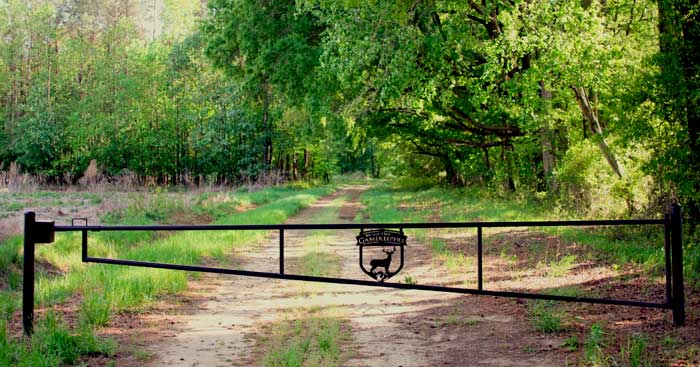
As gamekeepers we work tirelessly between our work and family commitments in our spare time doing whatever we can "afford" in respect to both time and money, to improve “our slice of heaven on earth.” Often this earthly “Promised Land” is located out in the county or even hundreds of miles away, and we can't keep a watchful eye on who is coming and going. I'd like to share a few tips to keep unwanted visitors from stopping by when you’re not home. The key elements of staying off the rogue hit list are:
- Zero Gossip. It may be tough at times, not to brag at the local service station or restaurant about what a great day you have had in the field. But trust me; share those great moments with your family and friends as you experience them and not as small talk at the local grill.
- Make sure your improvements such as a cabin and food plots are not visible or easily accessible from the access road. In other words, KEEP A LOW PROFILE.
- Keep out those whom you do not wish to have access. When you’re not there, that may mean everyone. Plain and simple…get a good gate! If you wish to allow access, keys can be handed out.
Since two-thirds of my strategy are simple concepts and take care of themselves, I will share with you some thoughts to take into consideration when selecting a gate system.
Determine the best location.
A point of control preferably at a drainage crossing or a narrow opening in the timber that will not allow for trucks or ATV's to drive around would be best. Another key consideration is to make sure your site is far enough away from the access road to allow for a place to pull in safely and access the gate. Additionally, if you have multiple access points my advice is the fewer the better.
Who needs to get in?
If large equipment routinely needs access, you will need to make sure the opening is wide enough to allow for it. For example, a 16-foot-wide skidder will require a 17-foot (minimum) opening. In instances where wider equipment and implements can simply pass over the gate, such as the boom on a combine or spraying equipment, the width may not be a big issue but the height will be. Additionally, if other parties will need access, you will need to provide a locking system that will allow for multiple locks. A good lock to trust is Masterlock's 5400D and Python 8418D.
What type of gate do you want?
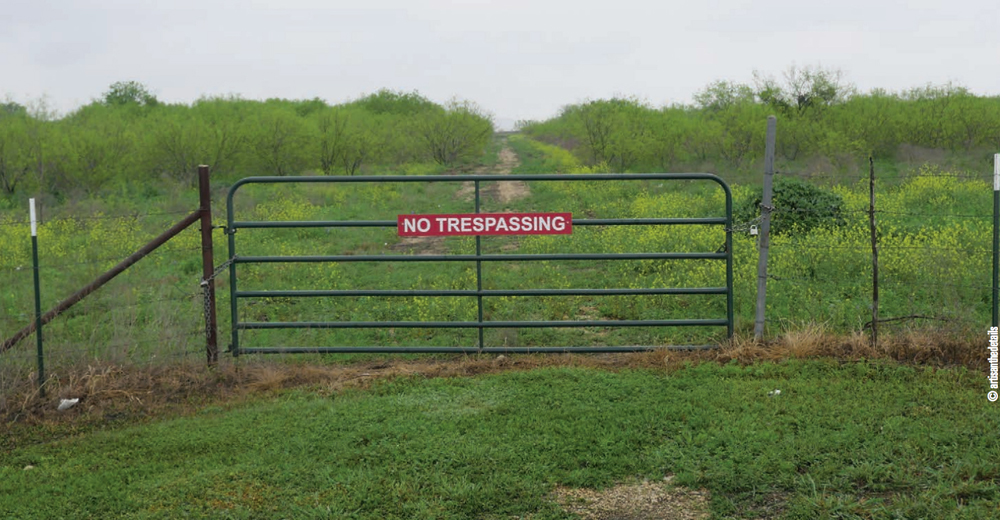
Since gates come in all shapes and sizes, this question may be a little overwhelming. Consider these details when selecting the right gate system. If the gate will be manually opened then you will need a swing gate. If it will be opened mechanically by an operator system, you will want a slide gate if you have the room for it to slide open.
HOW TO PREVENT YOUR GEAR FROM BEING STOLEN
Choose durability over a 20 to 50 percent difference in price, not only do you want this investment to last, you want it to stand up to the best effort of someone up to no good. In other words, your typical farm gate constructed of thin wall steel tubing with wall thicknesses less than .065 inches will work, but the life expectancy of this gate system complete with two j-bolts or lags will not serve you well for long. Look for a gate system with a wall thickness heavier than .065 inches (14-gauge) that has a hot dipped galvanized coating applied before being painted or powder coated. The heavier steel with a protective coating will ensure many years of good service.
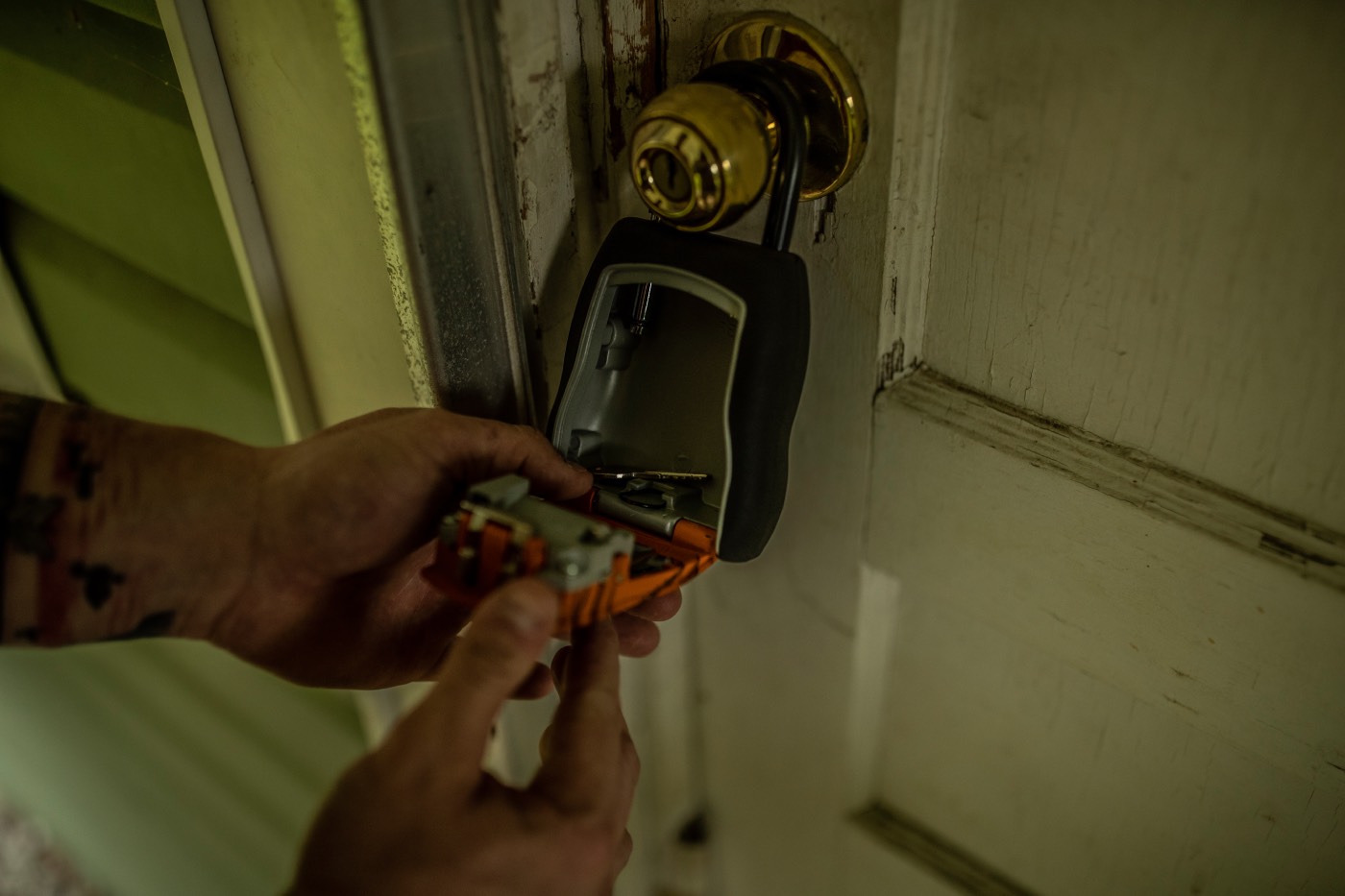
Pictured: Masterlock 5400D
The hardware and latch components are the last critical consideration, and the options are nearly limitless. We have found over the 64 plus years of building and installing property barrier gates that a welded ring and pivot ring hinge system is the most reliable and tamper-proof solution. Grease fittings on these rings are not a necessity since grease attracts dust and grit that will only aggravate the open and close cycle. A light lubricant applied every three months will keep the pivot ring system operating smoothly for 20 plus years. Lastly, the latch needs to be something other than a three-sixteenths of a piece of chain padlocked to itself. I prefer a covered lock system that protects the lock from vandalism. A gate outfitted with a welded slide latch and lock protector box is the most secure method we use.
Keep these simple suggestions in mind when planning improvements to your property and hopefully these tips will help maximize the enjoyment of being a “gamekeeper!”

















